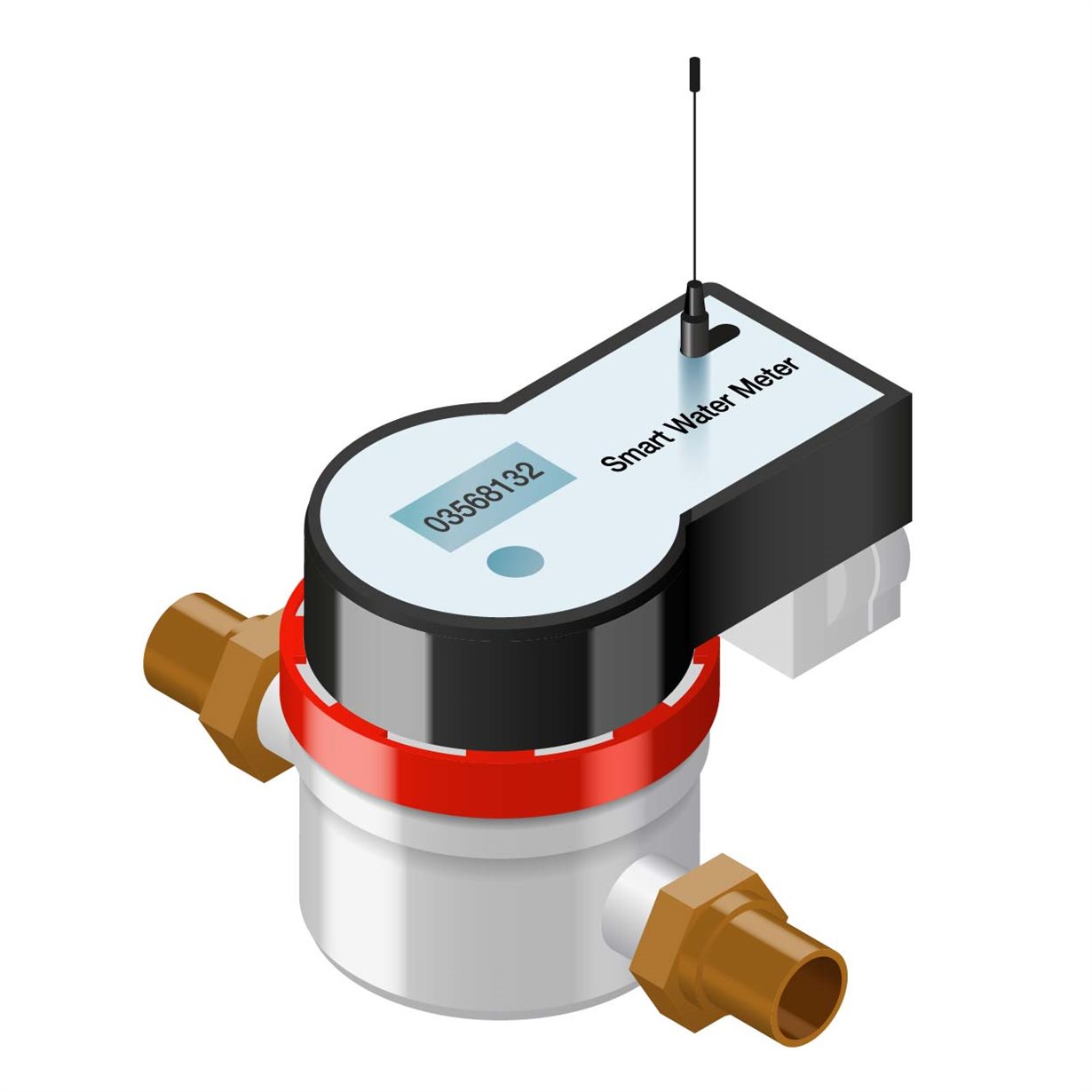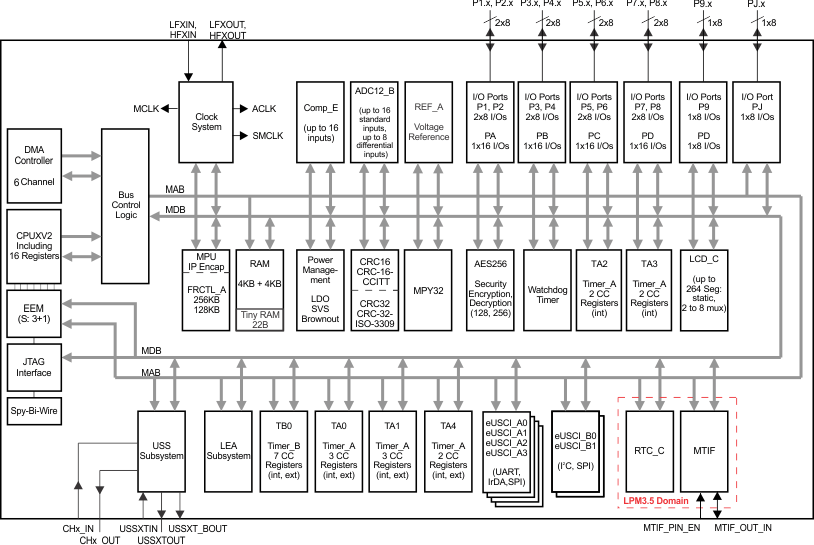SSZT650 August 2018 MSP430FR6047
Have you ever seen someone having to go around from house to house to take measurements from utility meters? We all consume utilities such as water, gas and electricity and utility company employees spend countless hours reading data from these meters. Because of this, meters also need to be placed somewhere that is easily accessible. Smart meters, like the one shown in Figure 1, provide a solution to this issue by allowing meters to be read without having to be directly accessed. This allows utility companies to read the meters without sending employees out to read every meter, and it also allows for monitoring at more frequent intervals.
 Figure 1 Smart Water Meter
Figure 1 Smart Water MeterOne commonly used wireless protocol for meters (specifically in Europe) is the wireless Meter Bus (wM-Bus), which is described by European Norms (EN 13757-1 thru 7). This is a sub-1 GHz protocol that defines the operation of both meters and data collectors, which receive and store data from meters. STACKFORCE GmbH defines an OMS (Open Metering System) compatible software stack that defines a serial interface, which allows a host processor to control a wireless device running the wM-Bus software stack via UART (Universal Asynchronous Receiver/Transmitter). This stack is implemented on multiple wireless devices from Texas Instruments (TI).
TI’s Using the MSP430FR6047 Wireless M-Bus Serial Library for Metering Applications Application Report describes how to use TI’s MSP430FR6047 ultrasonic sensing and measurement SoC and CC13x0 SimpleLink™ ultra-low-power wireless microcontroller (MCU) to create a low-power, high accuracy wireless meter solution. This is done using the Wireless M-Bus (wM-Bus) Serial Library, which provides functions and data structures to provide easy implementation on the MSP430FR6047 of the wM-Bus serial protocol to communicate with a wM-Bus device. Figure 2 shows the functional block diagram for this system using the wM-Bus UART interface and the serial library.
 Figure 2 MSP430FR6047
Figure 2 MSP430FR6047Other wM-Bus solutions (including 2-chip MCU + wireless transceiver solutions) are available from TI as well and, because the wM-Bus serial interface used with the Wireless M-Bus Serial Library uses a universal UART protocol, any of these solutions can be used to implement the wM-Bus stack and communicate with the MSP430FR6047.